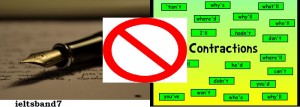IELTS Essay Sample Questions # Traditional Subjects
You should spend 40 minutes on this task.
Schools are spending more time teaching traditional subjects such as history. Some people think they should rather spend more time in teaching skills that can help students find a job.
To what extent do you agree or disagree?
Write at least 250 words.
SAMPLE ANSWER
Schools are considered to be the place where a child learns how to complete a syllabus and grasp the theory about practicals he or she will be doing as part of job. Some people are of the opinion that instead of making children cram the theory they must be given industrial training in school. In my opinion, I disagree on giving more importance to job specific training than theoritical knowledge.
Firstly, school is a place where a child develops his or her overall personality. Subjects like history, English help in understanding the world better. For example, a person who has learnt about the world war II will surely be better able to understand the present world scenario. Even more, often the work that we do is an amalgamation of lot of jobs put together. For instance, in IT it is not just about computer coding but also about communication skills.
Secondly, every industry is always changing and evolving. Getting a hold of how the industry works can limit the person in a box or a way of doing things. It is only when one knows the theory right and does faces the real life problems he or she develops a new way of dealing with things. In addition, there always comes a time when an individual becomes the master. Not having slightest of knowledge of other domains can make one’s career stagnant.
Overall, in my opinion, schools are where the students learn not just the subjects but importance of things like hard work, patience, relationships, time management. These are things one can learn when they have a broader knowledge base to get a grasp. Limiting one to a certain industry can make an individual stagnant in later phases of life.


